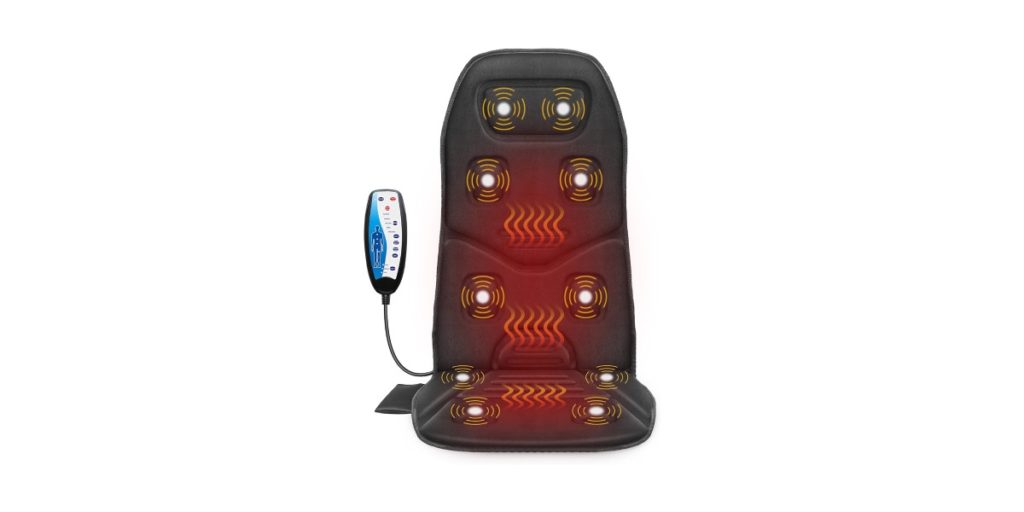In today’s hyper-connected world, the internet has become an indispensable lifeline, bridging gaps and erasing borders. This holds particularly true for those who spend a significant portion of their lives on the open road – truckers.
For these modern-day nomads, reliable WiFi is not merely a tool for leisurely pursuits or an optional amenity but a critical necessity. The importance of consistent best wifi hotspot for truckers cannot be overstated.

In addition to serving as a vital communication channel with family and friends, it facilitates real-time updates on weather and road conditions as well as efficient navigation through GPS services. Furthermore, it allows them to fulfill professional duties such as tracking shipments, invoicing clients, logging hours of service and staying abreast of industry news and regulations.
Beyond practical applications, robust WiFi connectivity fosters a sense of home comfort in the cab during long hauls by providing entertainment options like streaming movies or music and enabling social media interaction. In essence, dependable WiFi is more than just a useful tool; it is an essential thread in the fabric of a trucker’s working life.
What Are the Best Wifi Hotspot for Truckers
When it comes to finding the best WiFi hotspot options for truckers, there are a few factors to consider such as coverage, data plans, and portability. Here are some popular options that truckers often consider:
- Skyroam Solis X: This is a portable WiFi hotspot device that offers global coverage in multiple countries. It’s known for its ease of use and flexibility. It also has a built-in power bank and can connect multiple devices.
- Verizon Jetpack MiFi: Verizon offers various MiFi hotspot devices with different data plans. Verizon’s network coverage is generally known to be strong in many areas, making it a reliable choice for truckers who need coverage across different regions.
- AT&T Unite Explore: AT&T also offers mobile hotspot devices that provide good coverage. The Unite Explore is designed to withstand tougher conditions, making it a good option for truckers.
- T-Mobile Hotspot Devices: T-Mobile offers various hotspot options with unlimited plans. They are known for their competitive pricing and solid coverage in many areas.
- Nomad Internet: Nomad Internet provides hotspot solutions specifically aimed at travelers, including truckers. They offer plans with good coverage and high data limits.
- Netgear Nighthawk Hotspots: Netgear offers a range of mobile hotspot devices, with the Nighthawk series being particularly popular. These devices offer fast speeds and good connectivity.
When choosing a WiFi hotspot for truckers, be sure to consider factors like network coverage in the areas you’ll be traveling through, the data plans that suit your usage, and the device’s battery life. It’s also a good idea to read reviews and compare different options to find the one that best fits your needs.
Understanding WiFi Hotspots: Your Internet Oasis on the Open Road

A WiFi hotspot in its simplest definition serves as your portable gateway to the internet. It is essentially a physical location where people can access the internet, typically using Wi-Fi via their mobile device(s).
A portable Wi-fi hotspot device receives mobile data signals from your carrier and translates them into Wi-Fi signals that your other devices can connect to. A major advantage of having your own wifi hotspot device is that it allows you to establish an independent connection point wherever you are without being tethered down by location-specific public hotspots such as those available at cafes or hotels.
This independence becomes crucial when you consider unpredictable network availability or questionable security associated with public wi-fi networks. The operation mechanism behind these handy devices involves leveraging local 3G/4G/5G networks to provide Wi-Fi connectivity.
Data packets transmitted over cellular networks are converted into wireless signals that one’s laptop, tablet or smartphone can tap into. Hence these devices act like compact personal routers translating cellular data into wi-fi signals allowing multiple devices simultaneously connect to it irrespective of their geographic location.
The Need for a Reliable WiFi Hotspot for Truckers
The Indispensable Utility of Internet in a Trucker’s Life
In today’s hyper-connected world, the internet is not merely an optional luxury; it’s an integral part of a trucker’s day-to-day existence. Communication, first and foremost, is at the heart of why internet access is essential.
With emails, instant messaging and video calls, truck drivers can seamlessly connect with their loved ones while they’re on the road. This virtual proximity helps decrease feelings of isolation often associated with long-haul journeys.
Beyond personal connections, drivers heavily depend on the internet for professional purposes as well. This includes conveying real-time statuses about deliveries or any potential delays. Furthermore, complex GPS systems that aid in navigation are predominantly web-based and require persistent connectivity to provide real-time traffic updates and efficient route planning.
Last but not least, entertainment represents another significant facet of a trucker’s life where stable internet connection plays a vital role. Streaming music or podcasts during those long drives or enjoying favorite series during rest breaks are recreational activities that help keep truckers’ spirits high on solitary routes.
Navigating the Challenges: Internet Connectivity On The Road
While it might seem straightforward to maintain constant connectivity, ensuring reliable mobile internet connection for people continuously on-the-go brings challenges. The most predominant challenge springs from fluctuating signal strengths across different geographical locations. Not every corner of the country has equal network coverage; there are vast rural sections where signal strength drops significantly.
Consequently, it can disrupt everything from essential navigation to maintaining interpersonal communication which could lead to delays and even affect business productivity. Moreover, public Wi-Fi networks available at rest stops or cafes present another challenge – security concerns.
Given these networks are open and shared among numerous users simultaneously, they’re generally not secured against potential cyber-attacks leading to threats like data thefts & privacy invasion. Last but not least is cost-related challenges.
Factors to Consider when Choosing a WiFi Hotspot for Truckers
Selecting for Speed and Reliability
The speed and reliability of a WiFi hotspot is paramount. For truckers who rely on internet connectivity for operationally critical tasks, the speed of a hotspot can significantly impact their job efficiency. High-speed internet allows for seamless video streaming, fast downloads, and uninterrupted communication channels.
A reliable WiFi hotspot provides consistent service without unexpected dropouts or disconnections. However, it’s essential to note that speed should not compromise usability or reliability.
A Wi-Fi hotspot might offer incredibly high speeds but suffer from intermittent connection issues. Similarly, a reliable hotspot might deliver slow speeds that impede smooth online operations.
Therefore, an ideal WiFi hotspot strikes the perfect balance between high-speed data transmission and steadfast connectivity. Speeds are typically measured in megabits per second (Mbps).
While higher numbers typically signify faster connections, this isn’t always the case if connectivity is unstable. As such, it’s crucial to consider both factors together when selecting a suitable Wi-Fi hotspot.
Evaluating Coverage Area

The coverage area of your chosen WiFi device is another critical consideration. Trucking involves extensive travel across various regions. Some areas may have strong networking signals while others might be more remote with weaker signals.
Therefore, choosing a device with broad network coverage ensures that you remain connected irrespective of your location. A common pitfall many fall into is assuming that all hotspots provide equal coverage quality; this couldn’t be further from the truth!
Different hotspots leverage different network providers who each have varying strengths of coverage across geographic locations. Henceforth you should select based on where your routes frequently lead you.
Some devices also offer international roaming services which could be beneficial if your job requires cross-border travel. Comprehensive research about specific carrier coverage maps can provide useful insights into what to expect from different hotspots in terms of range.
Pondering Over Cost and Data Plans
Pricing structures for hotspots vary considerably amongst providers which necessitates thorough analysis before committing financially. Factors influencing cost include initial device cost and ongoing charges associated with data plans or contractual agreements. Data plans specifically require careful thought as these dictate how much internet use your package permits monthly.
Exceeding these limits can attract substantial additional costs which makes determining data needs vital to avoiding future budget strain.
Considering Ease of Use and Installation
In the trucking industry, time is of the essence. As a result, the ease of installation for products becomes crucial. The philosophy in product design here centers around simplicity. There’s no room for complexity, especially when setting up Wi-Fi hotspots. Truckers shouldn’t be burdened with additional tasks beyond their primary duties. It’s essential that these hotspots integrate smoothly with their existing processes.
Therefore, there’s a need to focus on intuitive interfaces, clear instructions, and user-friendly designs. Such designs help reduce the challenges and frustrations associated with unfamiliar technology. By doing so, adoption rates among operators will increase faster. This not only maximizes the return on investments made in Wi-Fi solutions but also ensures they meet the unique challenges of the trucking environment.
By keeping product design straightforward throughout its lifetime, decision-making confidence is bolstered. This showcases the strength of simple design strategies, which stand out compared to complicated alternatives that often fail to meet customer expectations and end up being counterproductive.
Review of Best WiFi Hotspot for Truckers
An In-Depth Look at Netgear Nighthawk M1 Mobile Hotspot Router
The Netgear Nighthawk M1 is a formidable contender when it comes to providing reliable and speedy internet on the go. It’s a dual-band router, meaning it supports both 2.4GHz and 5GHz bands, providing maximum flexibility and less network congestion.
With its download speed that can reach up to 1Gbps, communication, research or entertainment will not be an issue while on the road. However, like any device, it has its advantages and disadvantages.
The Nighthawk’s pros include its long-lasting battery life of up to 24 hours – more than enough for a day’s journey . The fact that it can support up to 20 devices simultaneously is great if you want your team connected during a trip. Conversely, some downsides are its weight; heavier than most hotspots available in the market due to its large battery size and it’s on the pricier side.
Getting Familiar with Skyroam Solis X Smartspot
The Skyroam Solis X Smartspot is designed for globetrotters with features like unlimited data usage in over 130 countries. It operates with virtual SIM technology which automatically connects you to local carriers without manual configuration. The pros are that apart from being a WiFi hotspot, this device also functions as a power bank and has an integrated camera.
Moreover, its compact design makes it highly portable. On the flip side though, there are some drawbacks such as lack of Ethernet port for direct-wired connections and non-user-replaceable battery.
Understanding Verizon Jetpack MiFi 8800L
Verizon Jetpack MiFi 8800L is powered by America’s largest LTE network offering high-speed internet access virtually anywhere within the country. This device allows connected users to stream videos seamlessly even when traveling at high speeds thanks to carrier aggregation technology. One of its major advantages includes extended battery life spanning up-to-24 hours on single charge along with quick charging feature ensuring minimal downtime between uses.
Furthermore, it supports guest Wi-Fi with optional time limit making sure your hotspot isn’t hogged by one user only. As for cons; while Verizon offers extensive coverage area there might be few dead zones particularly in remote locations where getting signal can be problematic.
A Glimpse into GlocalMe U3 Mobile Hotspot
The GlocalMe U3 Mobile Hotspot offers connectivity without boundaries. It operates effortlessly in over 140 countries thanks to its cloud SIM technology, which connects to local networks without the need for physical SIM cards. A distinctive feature of the U3 is the absence of contracts or hidden fees; users only pay for what they use.
Additionally, it can support up to ten devices simultaneously without considerably slowing down internet speeds. This ensures that every team member remains connected throughout their journey, regardless of the data used. It’s an ideal option for larger travel groups. However, it’s important to note that not every area has the same quality of service. It’s advisable to consult the coverage map before planning your route, especially if you’ll be traveling through rural areas that other providers might not cover.
On the downside, the U3’s battery life isn’t as long-lasting as some other models, so you might need to charge it more often on extended trips. It also comes with a slightly higher price point. Nevertheless, these drawbacks are balanced out by its advantages like global coverage, flexibility, and the absence of binding contracts.
How To Maximize The Use Of Your Wi-Fi Hotspot On The Road
Acing Data Conservation Tactics
When traveling frequently and relying on your mobile hotspot across various routes, it’s essential to manage your data usage efficiently. This ensures you get the most out of the limited resources you have. First, think about turning off automatic updates. Background applications that run without your knowledge can consume significant bandwidth. Next, be mindful of streaming videos in high quality; they can greatly increase data consumption. Whenever possible, opt for lower resolutions to strike a balance between enjoying your content and saving on data costs. Lastly, it’s a good idea to install traffic monitoring apps. These can help you track your daily data usage, which in turn aids in planning based on past trends.
Reliable Connectivity And Its Impact On The Road
Maintaining dependable connectivity during arduous trucking journeys is crucial. Being connected digitally does more than just keep you online; it significantly simplifies the lives of truckers. It allows for smooth communication and ensures that they have timely access to essential information. Moreover, it reduces the feelings of isolation and boredom that often come with the profession. A reliable connection can also add a touch of comfort and convenience to their challenging routine.
By adopting the right Wi-Fi hotspots, truckers can have a much-improved experience on the road. After all, who says trucking can’t enjoy the benefits of the modern digital age? We’re optimistic about a brighter, tech-enabled future for the trucking industry.










